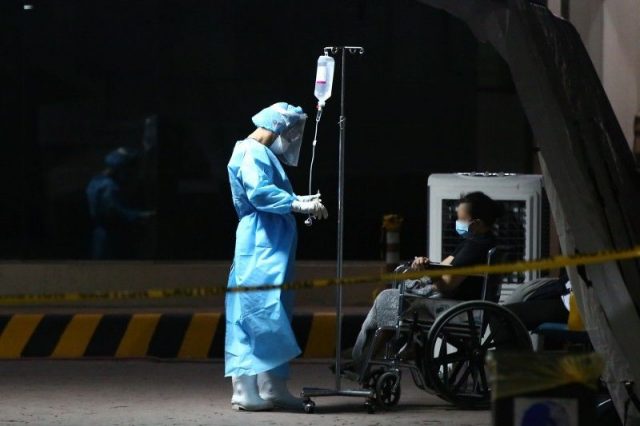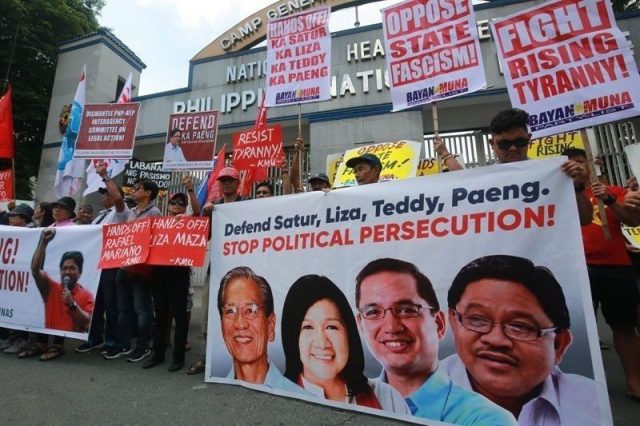Health worker groups reject DoH’s ‘singular allowance’ proposal
HEALTHCARE WORKER organizations on Monday rejected the Health department’s “singular allowance” proposal as it reduces current benefit packages and sets inaccurate categories in terms of risk exposure.
Filipino Nurses United President Maristela P. Abenojar called the proposal a “divisive and unjust cost-cutting measure that reflects little regard to the selfless work and sacrifice exerted by our health workers in this time of pandemic” during a media conference.
The Department of Health (DoH) earlier suggested providing monthly allocations of P3,000 to low-risk workers, P6,000 to medium-risk, and P9,000 for those at high-risk.
Alliance of Health Workers President Robert Mendoza said there was a discriminatory notion in a categorization based on “risk exposure,” stressing that all health workers must receive equal coronavirus disease 2019 (COVID-19) benefits.
“The DoH’s proposal to categorize the risk exposure of the health workers in hospitals and health facilities is completely unacceptable because the virulent virus can infect anyone,” he said. “Our data showed many health workers assigned in non-COVID areas are getting infected due to lack of protection, so everyone in the vicinity of the hospital and health facility are all considered high risk to COVID-19.”
The groups’ counter proposal includes no change in the P3,000 monthly provision for Active Hazard Duty Pay; P5,000 monthly pay Special risk allowance; P8,000 monthly pay for meals, accommodation and transportation allowance; and life insurance, adding that these should no longer be prorated.
They also called for the mass hiring of healthcare workers and enticing them by offering regular job positions, and better pay and benefits.
Meanwhile, the Department of Labor and Employment has recommended to the Commission on Higher Education to reopen schools that offer health-related courses, citing a gap in the supply of nurses in the country.
Labor Assistant Secretary Dominique R. Tutay acknowledged in a mobile message that “about 77,000 nurses are in unspecified practice or they could be working in some other sectors outside the medical/healthcare industry.” — Alyssa Nicole O. Tan and Bianca Angelica D. Añago












